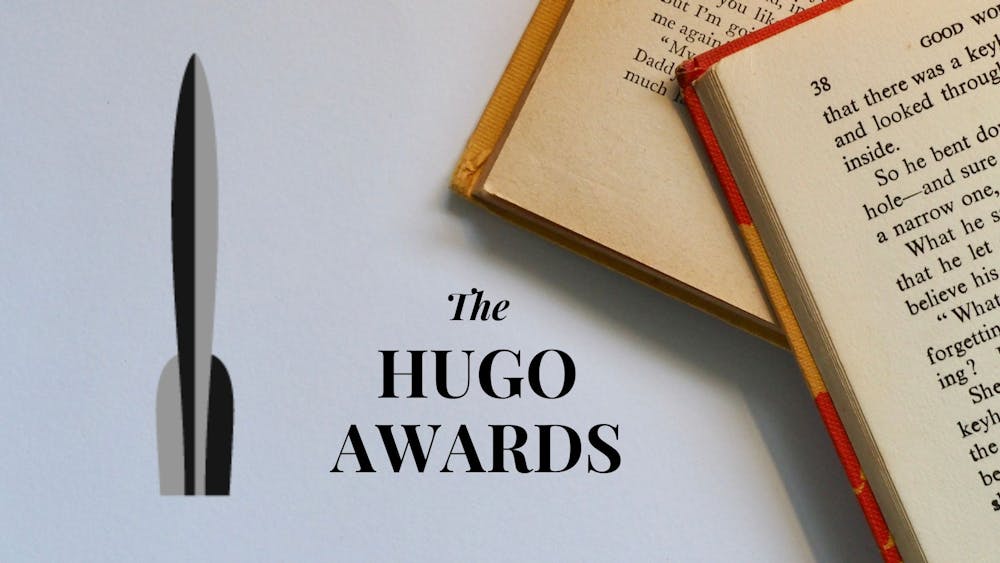In late January, the Hugo Awards released the data backing up the awards that were handed out for science fiction and fantasy novels in 2023. Controversy ensued as it was revealed that Chinese-Canadian author Xiran Jay Zhao and Chinese-American author Rebecca F. Kuang received enough preliminary votes to be nominated for major categories, but were ruled “ineligible” by Hugo Awards officials without explanation.
The Hugo Awards have been a staple in the world of science fiction and fantasy for the last 71 years, since its founding in 1953. Notable authors that have won their prize for Best Novel include Isaac Asimov, Ursula K. Le Guin and J.K. Rowling.
For many authors, especially those in earlier stages in their careers, the prestige of being nominated for — let alone winning — a Hugo Award is enough to boost book sales or get them a deal for another book.
“[Literary Awards] are central components to the production, promotion and longevity of literature in popular culture and have the potential to increase book sales and print runs, heighten exposure and publicity, and consecrate an author’s place within literary canons,” Stevie Marsden writes for the Oxford University Press.
Kuang’s novel “Babel” follows a boy named Robin who is taken from his home in China to become a student at Oxford University in an alternate universe where the act of translation powers magic that runs the Western world. The novel features detailed criticism of colonialism, especially through how Western education impacts people of color.
“Iron Widow” by Xiran Jay Zhao is a science fiction retelling of the story of China’s only female emperor, Wu Zeitian, set in a version of medieval China where young women are systematically killed to power male soldiers’ mechanical armor. Subverting expectations typical of the young adult genre, Zhao avoids a love triangle by introducing a polyamorous relationship between several main characters.
Both novels are #1 New York Times bestsellers and are intensely popular on the book-oriented niche of platforms such as TikTok and Instagram.
In response to the controversy, the World Science Fiction Society, which is the team behind the Hugo Awards, posted a statement on their website.
“Each year’s Awards are administered by that year’s World Science Fiction Convention, which is solely responsible for the conduct of that year’s Awards,” it said.
The convention at which the awards were handed out was hosted in Chengdu, China. People expressed concerns last year over whether local officials would be able to censor the awards, on topics including unfavorable portrayal of the Chinese government and LGBTQ+ themes.
For many members of the literary community, it looks like that’s exactly what has happened this year. Both authors who were primarily impacted were born in China and have spoken publicly against actions taken by the Chinese government involving the genocide against the Uyghur people. Zhao identifies as non-binary, and Kuang has described herself as queer.
Also impacted by the controversy were Neil Gaiman’s show “Sandman” and fan blogger Paul Weimer, who was a finalist for a fan award for the last three years. Gaiman and Weimer’s worksalso received enough votes to qualify for nominations and were disqualified for reasons that remain unclear.
Enjoy what you're reading?
Signup for our newsletter
Kuang’s statement about the matter, released on Instagram, has received almost 40,000 likes.
“Excluding ‘undesirable’ work is not only embarrassing for all involved parties, but renders the entire process and organization illegitimate,” she wrote.
Xiran Jay Zhao also released a statement expressing their frustration with the matter.
Dave McCarty, director of the World Science Fiction Society, commented on the situation in a now-deleted Facebook post.
“After reviewing the Constitution and the rules we must follow, the administration team determined those works/persons were not eligible.”
When other users criticized this response as intentionally vague, he replied with a remark that was considered ableist by some community members.
“Are you slow?” He commented.
Following the scandal, McCarty, as well as World Science Fiction Society board chair Kevin Standlee resigned from their respective positions on Jan. 30.
wahllm@miamioh.edu




